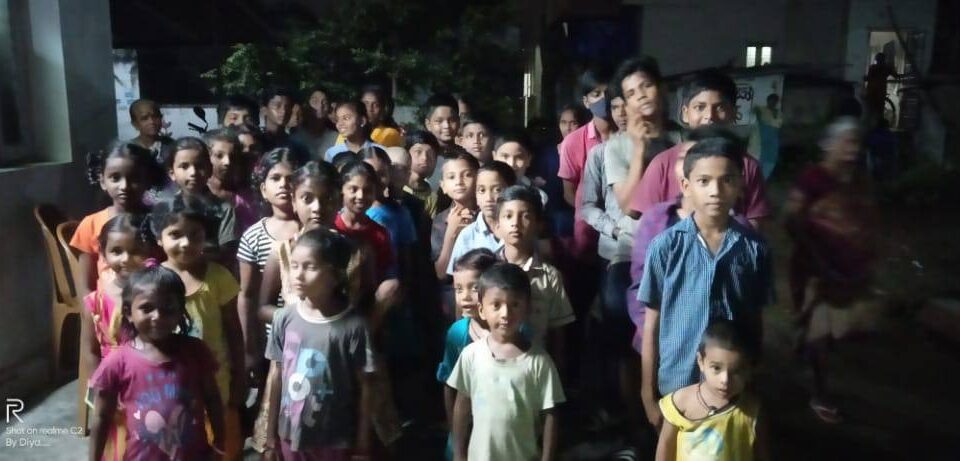 Andhra Pradesh, one of the most progressive states in India, has a long history of social welfare programs aimed at improving the living standards of its citizens. The state government, along with various non-governmental organizations (NGOs) and charitable institutions, has been working tirelessly to uplift marginalized communities, promote education, healthcare, and employment, and ensure economic empowerment for all.
Andhra Pradesh, one of the most progressive states in India, has a long history of social welfare programs aimed at improving the living standards of its citizens. The state government, along with various non-governmental organizations (NGOs) and charitable institutions, has been working tirelessly to uplift marginalized communities, promote education, healthcare, and employment, and ensure economic empowerment for all.
In this article, we will delve into the various social welfare activities in Andhra Pradesh, highlighting the transformative initiatives that have changed lives, created opportunities, and promoted sustainable development. From education to healthcare, from women’s empowerment to disaster relief efforts, social welfare in Andhra Pradesh touches every aspect of society.
Andhra Pradesh, a state known for its rich cultural heritage and vibrant economy, is also a leader in social welfare initiatives, aiming to improve the lives of its citizens through a wide range of transformative programs in education, healthcare, and economic empowerment.
Empowering the Youth: Education for a Brighter Future
Education has been one of the primary pillars of social welfare activities in Andhra Pradesh. Both the government and numerous NGOs have prioritized educational initiatives to break the cycle of poverty and provide children with the opportunity to build a better future.
Government Initiatives: The Government of Andhra Pradesh has launched various schemes to improve literacy rates, particularly in rural and remote areas. The Mana Badi Nadu-Nedu program is one such initiative, aimed at providing quality infrastructure and resources to government schools. This program focuses on improving classroom facilities, teaching materials, and the overall environment to ensure that every child receives a quality education.
NGO Contributions: Several NGOs, such as Pratham Foundation and Akshaya Patra, work in partnership with the government and other stakeholders to provide free education, mid-day meals, and after-school programs for children from underprivileged backgrounds. These initiatives ensure that children, especially girls, can attend school without worrying about food insecurity or other challenges.
Health and Wellness: Accessible Healthcare for All
Healthcare has always been a major focus of social welfare activities in Andhra Pradesh. With a growing population and evolving healthcare needs, the state has been proactive in ensuring that quality medical care is accessible to all, especially to those in rural areas who are often underserved.
Government Programs: The Dr. NTR Vaidya Seva scheme is one of the flagship healthcare initiatives by the Andhra Pradesh government. This initiative provides free medical treatment and surgeries for the poor, ensuring that no one is denied healthcare due to financial constraints. Additionally, the Arogya Raksha and Chandra Babu Naidu's Health Scheme aim to provide affordable healthcare to low-income families, with an emphasis on preventive care and health education.
NGOs and Healthcare: NGOs like CARE India, Sree Foundation, and Vimala Foundation have been instrumental in providing health camps, sanitation awareness programs, and free medical services in rural parts of Andhra Pradesh. These organizations work hand-in-hand with local communities to address health issues like maternal and child mortality, malnutrition, and the spread of infectious diseases.
Women’s Empowerment: Breaking Barriers and Creating Opportunities
Empowering women has been one of the key priorities in the social welfare programs in Andhra Pradesh. The state has made remarkable progress in promoting gender equality through various policies, programs, and community-driven initiatives.
Government Initiatives: The Amma Vodi scheme is one of the most impactful programs in Andhra Pradesh, providing financial assistance to mothers for sending their children to school. This initiative has been particularly beneficial in ensuring that girls, who are often kept at home due to financial constraints, receive an education. Furthermore, Self-Help Groups (SHGs) under the Women Empowerment Program have encouraged rural women to become financially independent through microfinance and entrepreneurship.
NGO Contributions: NGOs such as Beti Bachao Beti Padhao and Mahila Abhivruddhi Society have played an essential role in addressing issues like domestic violence, child marriage, and gender-based discrimination. They provide support services for women, such as counseling, skill development programs, and advocacy for women’s rights. These initiatives have significantly improved women’s access to resources, education, and employment opportunities.
Poverty Alleviation: Uplifting the Underprivileged
Andhra Pradesh has made significant strides in poverty alleviation through targeted welfare programs aimed at the economically disadvantaged sections of society. These initiatives focus on providing financial support, employment, housing, and skill development.
Government Welfare Schemes: The Rythu Bharosa scheme is a prime example of government-led poverty alleviation efforts. This program provides financial assistance to farmers and agricultural laborers, ensuring they have access to resources to improve their agricultural productivity. Additionally, the NTR Rural Housing Scheme offers free housing for the poor, helping them build safe and secure homes.
NGOs’ Role: NGOs like The Hunger Project, Oxfam India, and ActionAid focus on empowering marginalized communities through community-based development programs, offering livelihood support, vocational training, and sustainable agricultural practices. These organizations work alongside the government to create long-term solutions for poverty eradication.
Disaster Relief and Rehabilitation: Aiding Communities in Times of Crisis
Andhra Pradesh is no stranger to natural disasters such as cyclones, floods, and droughts. Social welfare activities in the state include a strong emphasis on disaster relief and rehabilitation efforts to assist communities affected by such calamities.
Government Actions: The Andhra Pradesh State Disaster Management Authority (APSDMA) has been working on disaster preparedness, relief, and rehabilitation programs. The state has established a rapid response mechanism that ensures timely relief during natural disasters, including provisions of food, medicine, and shelter for displaced individuals.
NGO Participation: Organizations such as Goonj and The Red Cross have played an active role in disaster relief operations in Andhra Pradesh. These NGOs provide emergency supplies, coordinate rehabilitation programs, and help rebuild communities affected by disasters. Additionally, they focus on post-disaster recovery, offering psycho-social support and long-term rehabilitation services.
Sustainable Development and Environmental Protection
Social welfare activities in Andhra Pradesh also extend to environmental protection and sustainability. The state is rich in natural resources, and various programs aim to protect these resources while promoting sustainable livelihoods for local communities.
Government Initiatives: The Jala Vahini scheme focuses on the conservation and management of water resources to ensure that farmers have access to adequate irrigation. Furthermore, the government has been promoting Green Andhra Pradesh through afforestation programs and initiatives aimed at reducing air pollution and preserving the state’s biodiversity.
NGO Contributions: NGOs such as Isha Foundation and Greenpeace India are actively working in Andhra Pradesh on environmental sustainability issues. They have initiated projects to raise awareness about climate change, promote organic farming, and reduce carbon footprints in the region.
Collaboration for Impact: The Role of NGOs in Andhra Pradesh
While the Andhra Pradesh government plays a crucial role in social welfare, NGOs have also been instrumental in driving change. Many of these organizations work closely with local communities to implement grassroots initiatives and ensure that welfare schemes are effectively executed.
The collaboration between the government, NGOs, and local communities has led to sustainable development, increased social equity, and improved standards of living. These partnerships have helped bridge gaps in service delivery, particularly in remote and underdeveloped areas.
Conclusion
Social welfare activities in Andhra Pradesh are a testament to the state’s commitment to improving the quality of life for all its citizens. From education and healthcare to women’s empowerment and disaster relief, Andhra Pradesh has taken bold steps toward creating a more equitable and prosperous society.
NGOs, in collaboration with the government, have been at the forefront of these efforts, ensuring that vulnerable communities receive the support they need to thrive. As we continue to work together, the future of Andhra Pradesh looks promising, with a focus on sustainable development, social equity, and community well-being.







